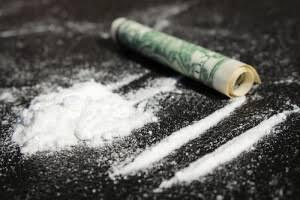
Cocaine is a powerful stimulant that directly affects the central nervous system and floods the brain with dopamine, causing a short-term, euphoric high. Due to the nature of the intense and energetic high and the tolerance built up through changes in brain chemistry, it can be highly addictive.
On its own cocaine creates rises in blood pressure and heart rate that can result in heart attack. It is more dangerous when it’s combined with other drugs, including alcohol. Combining it with heroin can be particularly fatal with a high risk of overdose.
Although its high cost compared to other illicit drugs make it unaffordable for some, it can be transformed quite easily into ‘crack’ or ‘crack cocaine’, which is much cheaper, more addictive and more intense. Crack has always been a much bigger problem in the USA compared to Australia, as has cocaine, due to the proximity to South America, where the coca plant it is derived from is native.
Cocaine Withdrawal
Like with all drugs, cocaine withdrawal is specific to cocaine and symptoms vary in duration and severity depending on the user and their pattern of use. Symptoms of cocaine withdrawal are usually more psychologically uncomfortable than physical and often require a tapered dose of prescription medication over a period of days. This will depend on the individual and symptoms need always be monitored by a clinical and medical team and treated accordingly.
Addiction Recovery believe that appropriate and accurate assessment is the basis for providing successful withdrawal and treatment services. Therefore, assessment and collection of information from the addict before they arrive and then on their arrival in imperative. A doctor should perform a comprehensive medical assessment to determine a suitable withdrawal regime. The clinical team will be highly experienced in providing safe and effective cocaine detox and cocaine treatment programs.
Primary treatment at cocaine rehab follows the same basic treatment model as programs at residential treatment centres like Seasons Bali but with additional psychological support where needed. A multi-disciplinary approach which includes a range of clinical therapies and therapeutic activities. By addressing the underlying causes of addiction the goal of treatment is ongoing, long-term recovery.
The recommended length of stay for primary treatment is 90 days, although most treatment centres offer 28 day and 60 day stays. Aftercare options such as Transitional Housing, Outpatient Programs and ongoing Counselling are also offered as an important part of maintaining ongoing recovery after cocaine treatment.